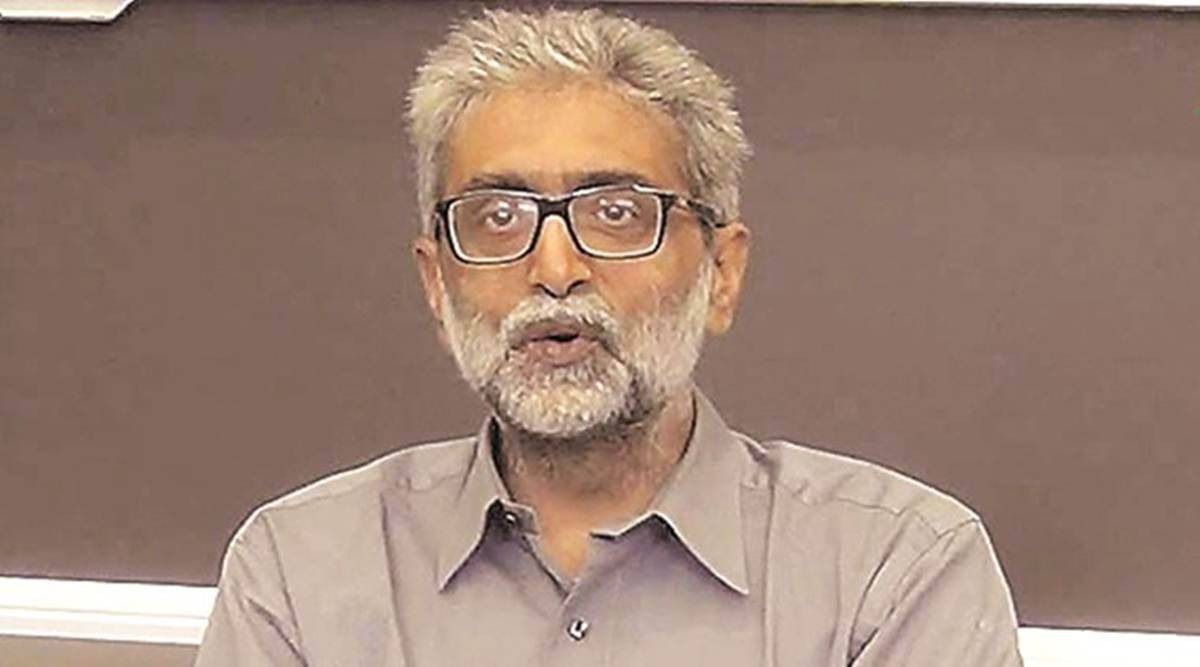 Navlakha surrendered on April 14 this year in Delhi before the NIA, after his bail pleas were dismissed by the High Court and the Supreme Court. (File)
Navlakha surrendered on April 14 this year in Delhi before the NIA, after his bail pleas were dismissed by the High Court and the Supreme Court. (File)The Bombay High Court Wednesday concluded hearing arguments on the appeal by Gautam Navlakha, activist and accused in the Elgaar Parishad case, against the special NIA Court ruling of July 12 that rejected his default bail plea.
Navlakha had sought default bail on the grounds that the investigating agency had failed to file a chargesheet within the stipulated period of 90 days. The NIA, however, claimed that the period of 34 days of Navlakha’s house arrest between August 29 and October 1, 2018 was termed ‘illegal’ by the Delhi High Court, and hence could not be included in the period of detention.
A division bench of Justices S S Shinde and M S Karnik was informed by senior counsel Kapil Sibal that the ‘house arrest’ in 2018 had restricted Navlakha and therefore his plea for default bail under Section 167 of the Criminal Procedure Code (CrPC) was valid.
Sibal argued, “Navlakha was under custody even when he was under house arrest. His freedom and movement were restricted under the same. Nature of custody was changed, but it was an arrest nonetheless…”
Sibal submitted that Navlakha surrendered on April 14 this year in Delhi before the NIA, after his bail pleas were dismissed by the High Court and the Supreme Court. Sibal said that the application for extension of time was filed by NIA on June 29 this year.
“If 34 days (of house arrest) are counted, the NIA’s application is beyond 90 days and the same is not maintainable and therefore Navlakha is entitled to default bail. He has cumulatively spent 93 days in custody,” Sibal argued.
However, Additional Solicitor General S V Raju, representing NIA, said the period of ‘house arrest’ cannot be counted, as the date of production of accused before the Magistrate was relevant to computing 90 days and not the date of arrest.
Raju further argued that as the Delhi HC had deemed the period of detention from August 29 to October 1, 2018 as ‘illegal,’ it could not be considered while calculating the period of the arrest.
After hearing submissions, the Court said it had concluded hearing arguments in the appeal and directed the parties to submit written submissions within a week’s time. The court closed the plea for orders, which will be passed in due course.